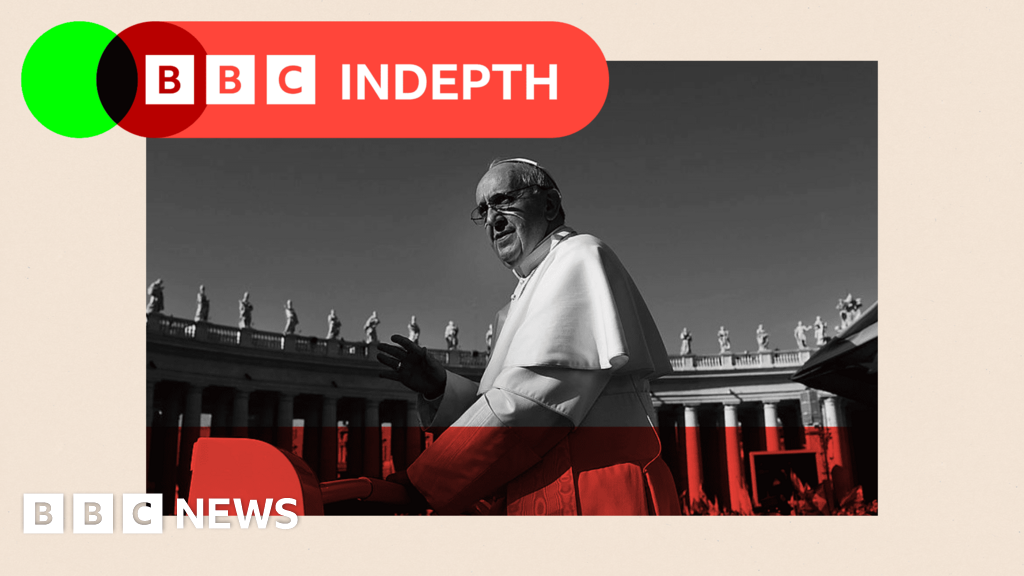Pope Francis' Transformational Papacy Leaves Lasting Impact on the Catholic Church

Pope Francis, over the course of twelve transformative years, has profoundly influenced the Catholic Church and its global outreach, navigating uncharted waters that will resonate for generations to come. Elected in 2013, he set out to soften the Church's image and engage with contemporary societal issues, taking a stand on crucial moral questions that define our times. While he garnered admiration for his pacifist stance and criticisms of powerful nations, his approach also drew ire from traditionalists who believed he strayed too far from established Church doctrines.
From the outset of his papacy, Pope Francis exuded a sense of informality and warmth, fostering an environment that put those he met at ease. This welcoming demeanor was reflective of his belief that the Church should be present in the everyday lives of people, regardless of their backgrounds. In his autobiography, Hope, released in January 2025, he admitted to initially believing his papacy might be brief, lasting no more than three or four years. However, it became clear that his commitment to his role would extend much longer.
One of his earliest decisions was to forgo the luxurious papal apartment in the Apostolic Palace, opting instead to reside in a guesthouse where he had stayed as a cardinal. This choice was not merely a personal preference; it symbolized his rejection of the ostentation associated with the papacy. As he explained, the guesthouse allowed him to connect more closely with others, as he preferred an environment that fostered interaction rather than isolation. During his travels to over 60 countries and numerous Vatican audiences, it was evident that his ability to engage with peopleespecially the youthwas fundamental to his mission.
Pope Francis notably signaled a shift in the Church's stance on various social issues, aiming for inclusivity and acceptance. Everyone in the Church is invited, including people who are divorced, including people who are homosexual, including people who are transgender, he stated in his autobiography. This marked a significant departure from prior doctrines, which often condemned divorce and viewed homosexuality as problematic. His compassionate approach aimed to reach out to those he termed "imperfect Catholics," acknowledging their struggles and the need for understanding within the Church.
While many progressives celebrated his openness, there was a recognition that his words could also impact those outside the Church. For instance, his meeting with a group of transgender individuals at the Vatican was particularly moving; they left in tears, touched by his embrace and acceptance. However, despite his efforts, some critics argued that he could have pushed for more substantial changes in Church policy regarding LGBTQ+ rights and gender issues. Although he promoted acceptance, the Church's teachings on homosexuality and divorce remained largely unchanged, which left some feeling that progress was insufficient.
Equally important was Pope Francis' focus on women's roles within the Church. He maintained his stance against female ordination but referred to the Church as "female" and advocated for more leadership roles for women. An example of this was the historic appointment of Sister Raffaella Petrini as secretary general of the papal state, a significant milestone under his papacy. Additionally, he initiated discussions about the potential roles women could play as deacons, although this remained a contentious issue.
In the latter part of his papacy, Pope Francis embarked on an ambitious three-year consultation process intended to listen to the concerns of the global Catholic community, comprising over a billion members. Thousands of listening sessions were organized worldwide, uncovering key issues such as the inclusion of women and LGBTQ+ individuals in Church life. While this process did not yield immediate changes, it underscored his desire for a Church that was more in touch with the believers' lives outside Rome.
Pope Francis also dedicated his papacy to addressing the needs of marginalized populations and advocating for social justice. His consistent messages concerning the dignity of migrants were a cornerstone of his ministry. He sought to build bridges with various religious denominations and those of different faiths, even participating in acts of humility, such as washing the feet of refugees, which stirred controversy among some traditionalists.
In tackling global issues, Pope Francis did not shy away from addressing climate change, linking it to poverty and urging action against environmental degradation. His encyclical Laudato Si emphasized the moral imperative to care for our planet, especially as it affects the poorest communities. An outspoken critic of war, he often labeled conflicts as failures of humanity, calling for peace and reconciliation in regions like Gaza, where he expressed concern for both Israeli and Palestinian lives.
Not without challenges, Pope Francis faced significant criticisms regarding his responses to global political crises. Many observers felt that his attempts to promote dialogue sometimes hindered a clearer condemnation of aggression, particularly regarding Russia's actions in Ukraine and the treatment of Catholics in China. He also confronted the persistent issues of corruption and abuse within the Church, taking significant steps toward transparency and accountability. His commitment to addressing the sexual abuse crisis was evident as he emphasized the need for the Church to seek forgiveness and take responsibility for the harm inflicted by clergy. His autobiography reflects this sentiment, as he expressed his deep regret for the Church's failures in this area.
Pope Francis also enacted policies mandating that Church officials report abuse allegations, reinforcing the necessity of accountability. While he faced criticism for sometimes supporting clergy accused of misconduct, he was quick to apologize for his errors. Throughout his papacy, he prioritized meeting with abuse survivors and making reparations a central theme of his outreach.
As he reshaped the hierarchy of the Church, approximately 80% of the cardinals who will elect the next pope were appointed by Pope Francis. His selections prioritized diversity, reflecting the expanding global nature of Catholicism beyond its European roots. The widespread outpouring of tributes following his passing is a testament to his transformative impact on the Church and the broader world.



















